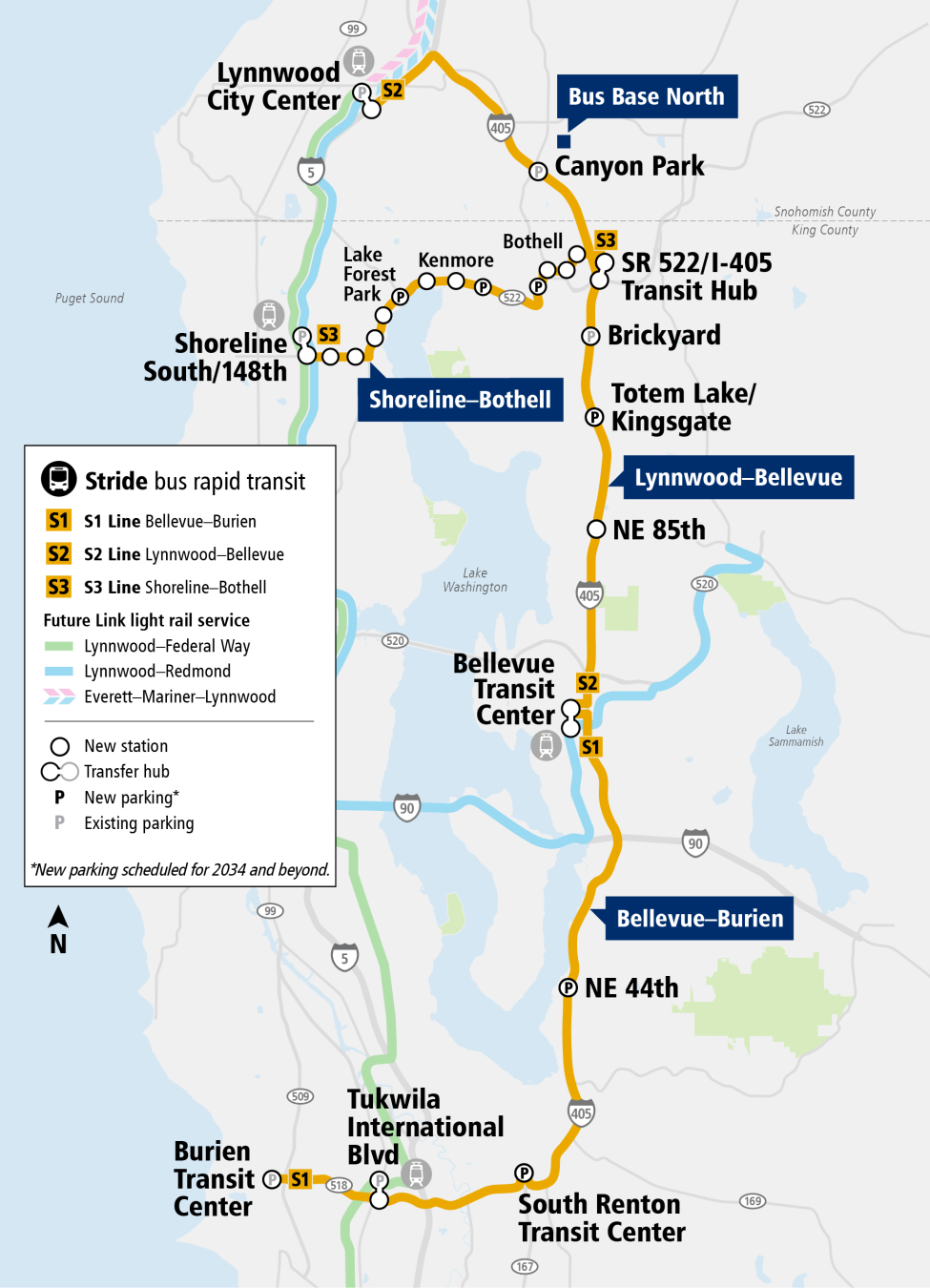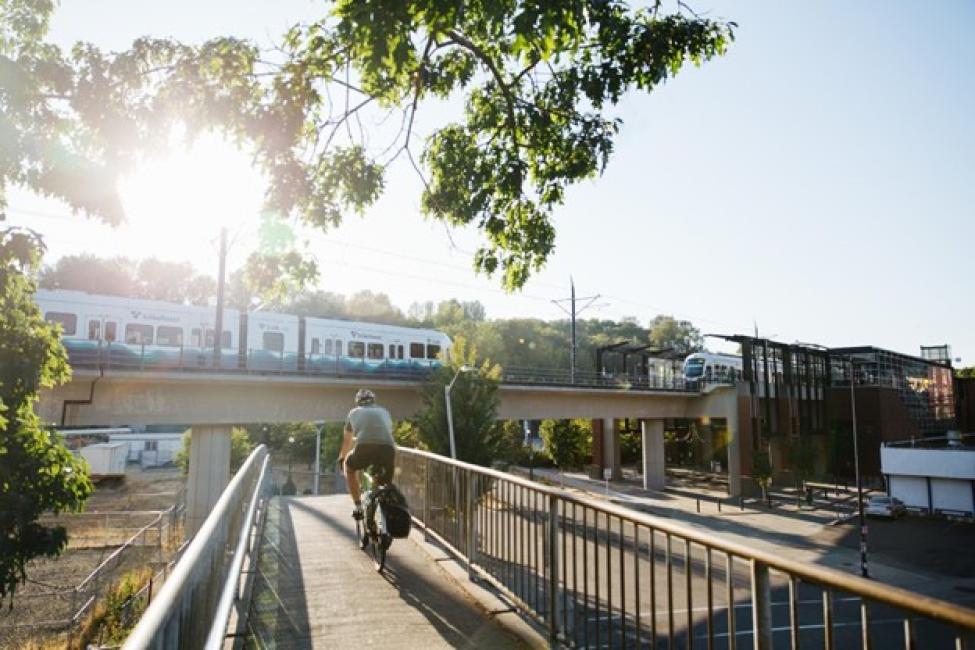Earth Day 2024 was a good reminder of the magnitude of our environmental responsibility; a responsibility that is front and center at Sound Transit. The Stride bus rapid transit program represents another major step toward our commitment to be carbon neutral by 2050.
One of the most exciting features of the upcoming Stride bus rapid transit program is, as it turns out, the actual buses! Stride will use a fleet comprised entirely of battery electric buses (BEBs) across all three of its lines (S1, S2, S3). The engines on these buses use 0 fossil fuels to drive and will provide quieter, comfier and cleaner transport for riders traveling across the Puget Sound region. Goodbye diesel!
When service on Stride begins in 2027/2028, you will see double-decker battery electric buses on the S1 and S2 lines and 60-foot-long articulated buses on the S3 line. With each charge, our buses will be able to travel the entirety of their routes without stopping, ensuring travelers get to their destinations on time! And get this... they’re wireless. That’s right - cords and plugs are not necessary for our BEBs to recharge during service. Between runs, buses will simply park, squat down and repower over wireless charging pads, built into roadway at each layover bay. Bonus, this charging system is one of many factor that will help Stride deliver fast, frequent and reliable public transit to the region.
Deputy Program Executive for Stride Operations, Lucien Bruno, explained, “it’s similar to how you wirelessly charge your phone. The difference is scale.” Lucien explained that inductive chargers in the ground have four “magnetic coils that each transmit 75 kW of [electrical] charge at each of the Stride layover locations.” Lucien added that Stride is the first program in North America to use this technology for double decker buses.
Lucien also pointed out that Sound Transit’s decision to make the entire Stride fleet electric exemplifies the agency’s commitment to sustainability and zero emission operations. Originally, only the Stride S3 line was planned for BEBs. However, agency staff were able to demonstrate the feasibility of deploying BEBs on all three lines, thereby encouraging leadership to seek Board approval of the necessary funds. “It shows the buy-in at all levels,” remarked Lucien. “They allowed us to make our case” for an all-electric fleet and, in the end, supported the commitment. The project team estimates that the electrification of the Stride fleet will result in a 97% reduction in CO2 emissions and 100% reduction in localized air pollution.
Without a doubt, the addition of Stride will enhance Sound Transit’s ability to support our planet, its people and their prosperity by offering affordable and environmentally friendly public transit. Specifically, Lucien hopes that electrifying our Stride fleet represents an important step towards an entire zero-emissions bus fleet at Sound Transit and ultimately to a more sustainable transit system.
These buses will allow thousands of people to connect seamlessly to other transit services, such as Link Light Rail, and travel to major regional destinations. The best part is, you’ll be doing so comfortably and cleanly. Join us as we Stride into a cleaner future.




